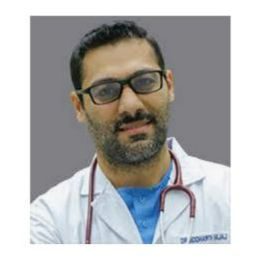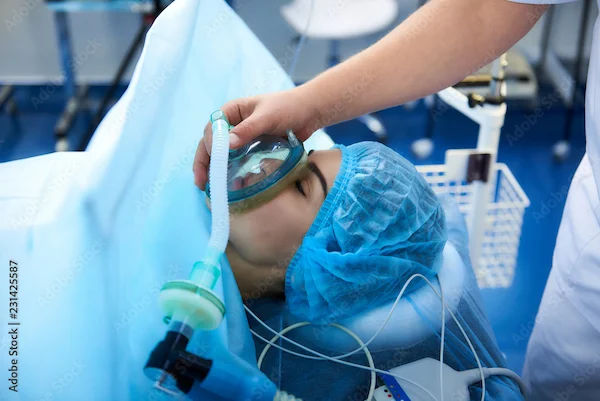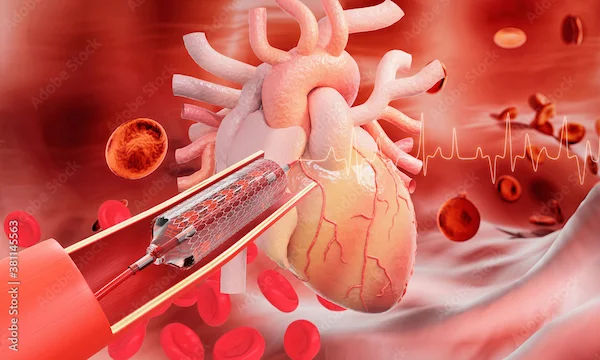Causes of Stroke in Women
Understand the unique and common causes of stroke in women, including hormonal factors, pregnancy complications, and specific lifestyle risks. Learn how recognizing these differences is vital for prevention and early intervention to protect women's brain health.

Written by Dr. Rohinipriyanka Pondugula
Reviewed by Dr. Mohammed Kamran MBBS, FIDM
Last updated on 12th Aug, 2025

A stroke is a serious medical condition that occurs when blood flow to a part of the brain is interrupted, leading to brain cell damage. While strokes can affect anyone, women face unique risk factors that make them more vulnerable. Understanding these causes can help in prevention and early intervention.
What is a Stroke?
A stroke happens when:
- A blood clot blocks an artery (ischemic stroke).
- A blood vessel bursts, causing bleeding in the brain (hemorrhagic stroke).
Without prompt treatment, a stroke can lead to long-term disability or even death.
Why Are Women at Higher Risk?
Women have certain biological and lifestyle factors that increase their chances of having a stroke, including:
1. Hormonal Factors
- Pregnancy: High blood pressure (preeclampsia), gestational diabetes, and blood clots during pregnancy raise stroke risk.
- Birth Control Pills: Hormonal contraceptives, especially when combined with smoking or high blood pressure, can increase clotting risks.
- Menopause: Lower estrogen levels after menopause contribute to higher blood pressure and cholesterol, increasing stroke risk.
2. Medical Conditions More Common in Women
- Migraines with Aura: Women are more likely to have migraines with visual disturbances, which are linked to stroke.
- Autoimmune Diseases: Conditions like lupus and rheumatoid arthritis increase inflammation and clotting risks.
- Atrial Fibrillation (AFib): An irregular heartbeat that can cause blood clots, leading to stroke.
3. Lifestyle and Emotional Factors
- Stress & Depression: Women experience higher rates of chronic stress and depression, which can contribute to high blood pressure and stroke.
- Physical Inactivity: Lack of exercise increases obesity, diabetes, and hypertension—all stroke risk factors.
- Poor Diet: High salt, sugar, and processed foods contribute to high cholesterol and blood pressure.
Warning Signs of Stroke in Women
Women may experience classic stroke symptoms like:
- Sudden numbness or weakness in the face, arm, or leg (especially on one side).
- Confusion, trouble speaking, or difficulty understanding speech.
- Vision problems in one or both eyes.
- Severe headache with no known cause.
Unique symptoms in women may include:
- Sudden hiccups or nausea.
- Fainting or loss of consciousness.
- General weakness or fatigue.
Remember: FAST for Stroke Detection
- Face drooping
- Arm weakness
- Speech difficulty
- Time to call emergency services
Consult Top Heart Specialists
How Can Women Lower Their Stroke Risk?
Ways women can lower their stroke risk:
1. Manage Blood Pressure & Cholesterol
- Get regular checkups.
- Follow a low-sodium diet and take prescribed medications.
2. Stay Active
- Aim for 30 minutes of exercise (walking, yoga, swimming) most days.
3. Eat a Heart Healthy Diet
- More fruits, vegetables, whole grains, and lean proteins.
- Less processed foods, sugary drinks, and trans fats.
4. Quit Smoking & Limit Alcohol
- Smoking doubles stroke risk.
- Alcohol should be limited to 1 drink per day.
5. Control Diabetes & Weight
- Monitor blood sugar levels.
- Maintain a healthy weight through diet and exercise.
6. Manage Stress & Mental Health
Practice meditation, deep breathing, or therapy if needed.
When to See a Doctor?
If you have:
- A family history of stroke.
- High blood pressure, diabetes, or heart disease.
- Frequent migraines with aura.
Consult a doctor for personalized advice. Apollo 24|7 offers expert consultations and health checkups to help you stay ahead of stroke risks.
Final Thoughts
While strokes can be lifethreatening, many risk factors are controllable. By making healthy lifestyle choices and staying informed, women can significantly reduce their chances of having a stroke. If you or a loved one experiences stroke symptoms, seek emergency care immediately—every second counts!
Would you like to book a preventive health checkup or consult a specialist? Visit Apollo 24|7 today for expert care and support.
Consult Top Heart Specialists
Consult Top Heart Specialists

Dr. Dayanashre N
General Physician
3 Years • MBBS
Bengaluru
PRESTIGE SHANTHINIKETAN - SOCIETY CLINIC, Bengaluru

Dr. Bhethala Sharan Prakash
General Physician/ Internal Medicine Specialist
5 Years • MBBS MD
Bengaluru
PRESTIGE SHANTHINIKETAN - SOCIETY CLINIC, Bengaluru

Dr. Anand Ravi
General Physician
2 Years • MBBS
Bengaluru
PRESTIGE SHANTHINIKETAN - SOCIETY CLINIC, Bengaluru

Dr. Siddharth Bajaj
Cardiologist
10 Years • MBBS, M.D. D.M. (Cardiology)
Hyderabad
Apollo Hospitals Jubilee Hills, Hyderabad
Dr. Diganta Buragohain
Cardiologist
1 Years • "DM (Cardiology) in 2025 from NEIGRIHMS, Shillong MD (General Medicine) in 2020 Gauhati Medical College, MBBS in 2015 from Gauhati Medical College,"
Guwahati
Apollo Excelcare Hospital, Guwahati
Consult Top Heart Specialists

Dr. Dayanashre N
General Physician
3 Years • MBBS
Bengaluru
PRESTIGE SHANTHINIKETAN - SOCIETY CLINIC, Bengaluru

Dr. Bhethala Sharan Prakash
General Physician/ Internal Medicine Specialist
5 Years • MBBS MD
Bengaluru
PRESTIGE SHANTHINIKETAN - SOCIETY CLINIC, Bengaluru

Dr. Anand Ravi
General Physician
2 Years • MBBS
Bengaluru
PRESTIGE SHANTHINIKETAN - SOCIETY CLINIC, Bengaluru

Dr. Siddharth Bajaj
Cardiologist
10 Years • MBBS, M.D. D.M. (Cardiology)
Hyderabad
Apollo Hospitals Jubilee Hills, Hyderabad
Dr. Diganta Buragohain
Cardiologist
1 Years • "DM (Cardiology) in 2025 from NEIGRIHMS, Shillong MD (General Medicine) in 2020 Gauhati Medical College, MBBS in 2015 from Gauhati Medical College,"
Guwahati
Apollo Excelcare Hospital, Guwahati


.webp)

